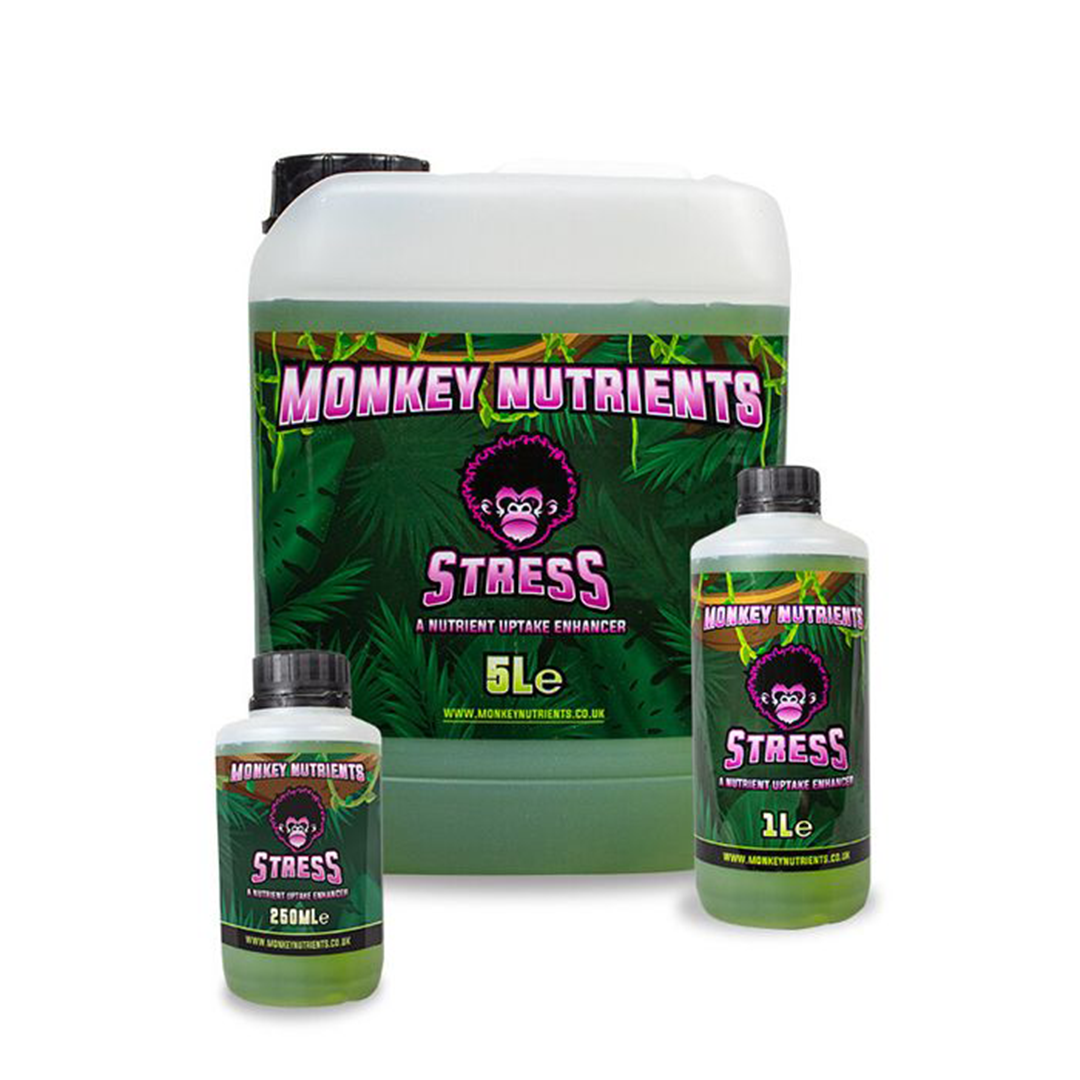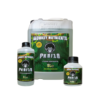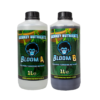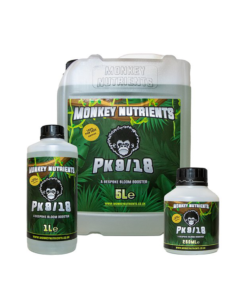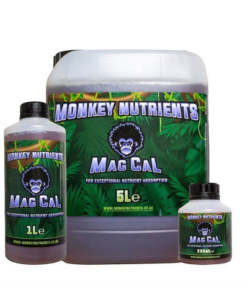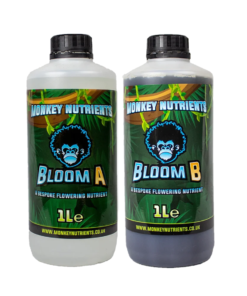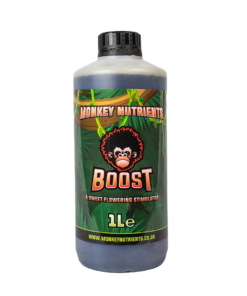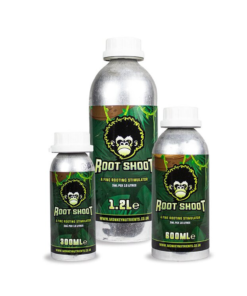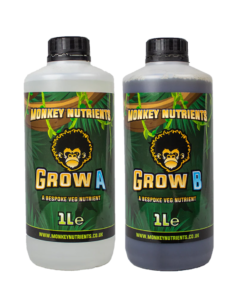Overview
Monkey Stress is a stable and bio-available form of silicon, called mono-silicic acid (also called Ortho-silicic acid). Although not an essential nutrient for plant life, it has been found to be an extremely beneficial growth hack. The formula is highly concentrated with it’s effects quickly visible. Plants given Stress will show a robust vigour, which will help support it physically and protect it from abiotic and biotic stresses.
Stress is also a vital component in the second key stage of plant development, Shoots. With stress you will observe dense lateral canopy growth. This provides for increased flowering sites in bloom.
WHAT IS STRESS?
- Silicon is one of the most abundant elements, second only to oxygen ! Rocks, sand and soil all contain huge amounts of silicon but not all silicon is the same…
- Stress is Mono-silicic acid. The bio-available form of silicon, specifically made for plant development.
- Mono-silicic acid deposits directly on the outer layer of cell walls providing mechanical and physical strength to cells.
- Stress provides a shield of armour to protect and defend plants from biotic (living) and abiotic (non-living) stress factors
WHY USE STRESS?
- Shoots. Stress will increase the number and density of healthy new shoots.
- Helps reduce internodal spacing through vegetative growth; allowing for fuller, thicker canopies.
- Corrects nutrient imbalances by improving uptake efficiency. This also reduces nutrient salt build up in the growing media
- Manages abiotic stressors such as hot and cold stress, over and under watering.
- Protection. Physical and systemic pest management.
HOW DOES STRESS WORK?
- When mono-silicic acid is taken up by the roots it physically deposits onto the plant cell walls. This acts like cement between bricks. During times of abiotic stress (such as drought) turgid pressure in the cell remains high, helping the plant to maintain its shape.
- when mono silicic acid enters the root zone it also acts as a transporter / carrier. It increases vascular pressure in the plants xylem, bringing in beneficial heavy immobile minerals. This for example aids in increased calcium absorption.
- With plant cell walls structurally enhanced the added protection makes it more difficult for leaf eating pests to damage crops. The wonders of Mono-silicic acid don’t stop here, it has also been found to play a role in plant immunity and signalling defence responses to bacterial, viral and fungal infections.
| Size | 1L, 250ML |
|---|
Related products
Monkey Nutrients
Monkey Nutrients
Monkey Nutrients
Monkey Nutrients
Monkey Nutrients
Monkey Nutrients
Monkey Nutrients

